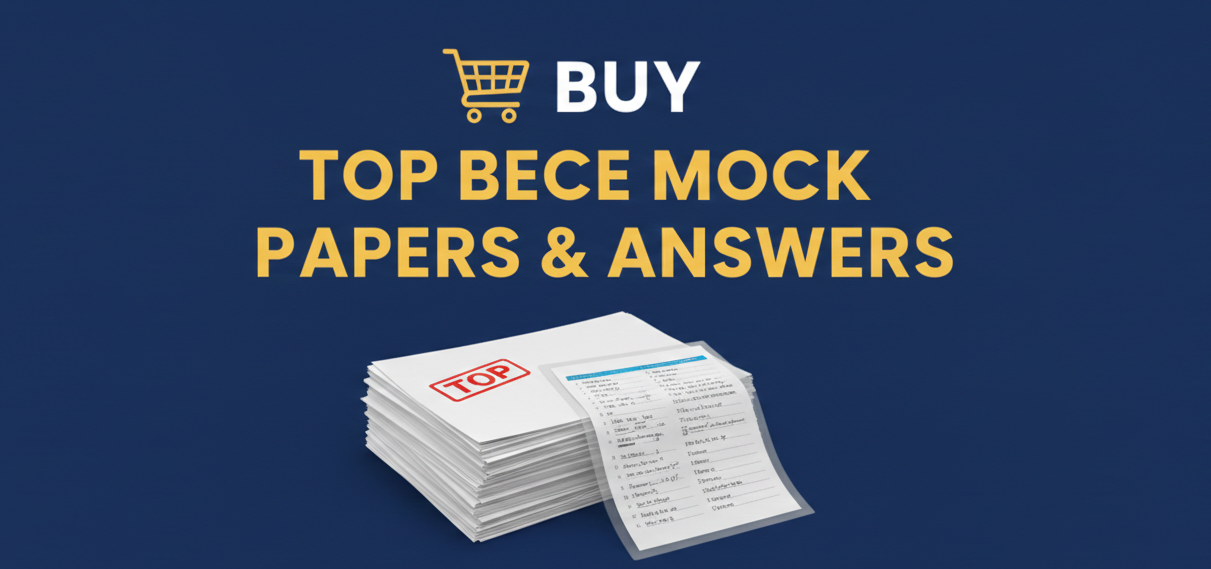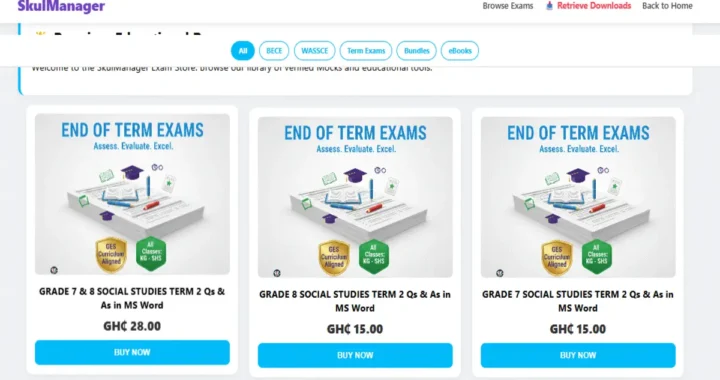Mastering Exam Success: 9 Effective Revision and Learning Strategies for Optimal Student Preparation

Mastering Your Materials For Exam Success Does Not Come Easy But There Are Nine (9) Effective Revision and Learning Strategies for Optimal Student Preparation That Many Students And Teachers Use Just A Few Times.
In today’s competitive academic environment, students must find effective ways to prepare for exams. The review process is the key to mastering the material and guaranteeing strong performance in the tests. Good revision strategies help students optimize study times, making the experience more productive and less stressful. Using effective methods, students can improve their understanding, better keep information and get closer to exams with confidence.
Types of Revision and Learning Strategies
There are different strategies that students can employ to make their review more effective. Let us look at some of the 9 Effective Revision and Learning Strategies for Optimal Student Preparation to help you revise for any examination if you want to excel.
#1. Active learning
One of the first strategies is active learning.
This approach encourages students to actively engage with the material rather than just read or listen passively. For example, students could summarize what they learned, teach someone else’s concepts or create mental maps to view connections between ideas.
Active learning involves doing things like discussing topics in study groups or questioning themselves, which helps to deepen their understanding of the material. This strategy works better if used regularly during the study period, rather than cramming immediately before the exams.
#2 Spaced repetition
Another important strategy is the spaced repetition. This method provides for the revision of information at growing intervals over time. Instead of studying everything in a long session, students range their review sessions for days or weeks. This allows their brain to develop better and remember the information.
For example, after learning a new concept, a student could see him again the next day, then again in three days, and then again a week later. By spreading their study sessions, students are less likely to forget what they have learned and can get better conservation rates.
#3. Authorgulation
Authorgulation is a third strategy that emphasizes the personal management of learning. This includes the definition of specific objectives, the monitoring of progress and the regulation of study habits as needed. Students who practice self -regulation can plan their study programs and develop routines that work better for them.
For example, they can decide to study in shorter explosions and focused with breakage in the middle, rather than in long and exhausting hours. This personal control over their learning process not only helps to manage time, but also increases motivation.
#5 Practical test
The practical test is another effective revision method. This involves taking practice or quiz exams on the subject to evaluate understanding and strengthening memory. The research shows that students who practice recovery of information from memory tend to remember them better.
This strategy can help students get used to examination format and reduce anxiety when it’s time to do the real test. Incorporate the practice tests in their study program, ideally a few weeks before the exams, it allows students to identify the areas where they need more attention.
#6. Feedback
Finally, the incorporation of the feedback plays a crucial role in the revision process. After the students have done practices or complete tasks, receiving feedback helps them understand what they did well and where they need improvements. This feedback can come from teachers, colleagues or self -assessment.
The use of feedback allows students in a constructive way to adapt their study strategies accordingly, focusing on weaker areas and perfecting their strengths. By creating a continuous improvement cycle, feedback encourages students to fight for better results.
The use of a combination of these strategies can significantly improve the readiness of the students’ exam and the general academic success (Flake & Gabriel, 2023). Through active learning, spaced repetition, self -regulation, practice tests and the incorporation of feedback, students can create an all -round and effective revision strategy that leads to better test performance., Active learning is a method that helps students engage with the material they study.
This approach is important to improve information retention. When students actively participate in their learning, they tend to better remember the information. Active learning can take many forms, such as summary, teaching others and discussions. For example, when students sum up what they learned, they have to think about information and put it in their own words. This process can help deepen their understanding.
Teaching others is another effective technique. When students explain the concepts to their peers, they strengthen their knowledge and identify the shortcomings of their understanding. Group discussions also improve this method. Engaging conversations on equipment allows students to exchange ideas and understand different perspectives. According to Race (2019), the use of active learning strategies can change the way students study and improve their examination performance.
READ: Empowering Generation Z: The Surge in Tech Skills Acquisition Through Online Learning Platforms
#7. Escaited rehearsal
Escaited rehearsal is another vital strategy that helps students remember information more effectively over time. This technique consists in examining the equipment at increasing intervals.
Instead of piling up all the information in a single session, students divide their study sessions into smaller and spaced periods. Research by Zimmerman et al. (2023) shows that the spacing of the opinions allows the brain to process information more in -depth and makes it easier to remember during an examination.
For example, a student could study a chapter today, see him again tomorrow, then see him again a week later. This practice strengthens memory by exhibiting students on several occasions to equipment, which leads to a better reminder during exams. The effective planning and calendar of these examination sessions can considerably improve long -term retention of information.
#8. Self -regulation learning
Self -regulation plays a crucial role in maximizing the effectiveness of the study. It is a great Effective Revision and Learning Strategies. Self -regulated learning refers to how students control their own learning process, from planning their study sessions to monitoring their progress. SELI (2019) stresses that effective self -regulation can cause school performance improvement.
Students can implement self -regulation by setting specific objectives for their studies. For example, instead of aiming to “study more”, a student could decide to take three practice exams by the end of the week.
This targeted objective creates a clearer path for learning. In addition, self-assessment is a useful tool, where students assess their understanding of equipment. For example, after a study session, they can ask questions about what they have learned or take quiz to check their knowledge.
By planning their learning activities and regularly evaluating their progress, students can ensure that they remain on the right track and take advantage of their study time., Practice tests is a powerful way to improve how well students remember the information. When students test themselves, they help their brains find and remove the knowledge they have learned.
This technique is known as recovery practice. It is different from just reading grades or textbooks, because it makes students think about what they know. Studies show that doing practical exams can strengthen memory.
These practice exams give students a chance to see what they know, what they don’t know well and what they need to study more. For example, a student can take a small test every week with the material he has learned. This can keep your knowledge fresh and increase your confidence.
The suggested frequency for the use of practical tests is to make it a regular part of the study. Spillner and Linz’s research in 2021 shows that regular tests during the study phases help students measure their understanding.
READ: Official 2025 BECE Timetable Out and Downloadable Here
This consistent practice leads to better material retention. It is essential to space these tests. Instead of pilgting everything at once, students should plan to review and test themselves every few days. This way they allow time to rest and for their brains to better process the material.
#9. Incorporation of feedback
The incorporation of feedback is another Effective Revision and Learning Strategies that students should use. Feedback, or criticism of colleagues and instructors can point out areas where students need improvements. This is very important because it helps students understand what may be missing or misunderstood.
For example, after taking a practice test, students should take time to review their answers and seek feedback. They can ask a teacher for help or discuss answers with classmates. When students receive this feedback, they can adjust their study habits and tactics. This not only increases knowledge, but also creates confidence.
The moment of feedback is crucial to its effectiveness, and Flake and Gabriel research in 2023 suggests that feedback integration soon after practice tests is ideal for continuous improvements.
By examining the corrections, while the material is still fresh in their minds, students can make the necessary changes in their study techniques before the next exam. This creates a cycle in which they are constantly learning and refining their skills over time.
Together, the test and feedback practice create a very positive study environment for students. These strategies work better when they are combined and used regularly.
READ: How To Use The New 2025 BECE Timetable For Crafting Tailored Study Strategies
This makes it clear that applying these timely strategies can improve understanding and better prepare students for their exams. Incorporation of practical tests regularly and immediately with constructive feedback can significantly increase student preparation and performance.
References
Seli, H. (2019). Motivation and learning strategies for college success: A focus on self-regulated learning. Routledge.
Zimmerman, B. J., Greenberg, D., & Weinstein, C. E. (2023). Self-regulating academic study time: A strategy approach. In Self-regulation of learning and performance (pp. 181-199). Routledge.
Flake, S. M., & Gabriel, K. F. (2023). Teaching unprepared students: Strategies for promoting success and retention in higher education. Routledge.
Race, P. (2019). The lecturer’s toolkit: A practical guide to assessment, learning and teaching. Routledge.
Spillner, A., & Linz, T. (2021). Software testing foundations: A study guide for the certified tester exam-foundation level-ISTQB® compliant. dpunkt. verlag.




 Terrorist Attack Ghanaian Tomato Traders in Burkina Faso
Terrorist Attack Ghanaian Tomato Traders in Burkina Faso  New Term 2 End of Term Question: Nursery to Grade 8 Exam Packs (2026)
New Term 2 End of Term Question: Nursery to Grade 8 Exam Packs (2026)  Why MTN Ghana’s Ghs399 Bundle is the Best Data Deal in 2026
Why MTN Ghana’s Ghs399 Bundle is the Best Data Deal in 2026  CAGD Salary Suspension 2026: Deadlines and Actions for Affected Staff
CAGD Salary Suspension 2026: Deadlines and Actions for Affected Staff